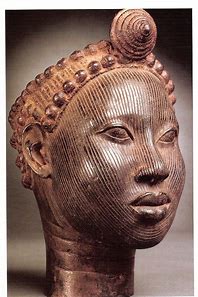













Vitamin B12 deficiency symptoms: How to spot the signs in your feet
Vitamin B12 is vital to maintain healthy energy levels and is one of the most important vitamins in maintaining the nervous system. Consistently low levels of B12 can cause "damage" to parts of the nervous system, warns the NHS, even leading to irreversible damage.
The nervous system has two main parts: the central nervous system, which is made up of the brain and spinal cord, and the peripheral nervous system, which is made up of nerves that branch off from the spinal cord and extend to all parts of the body.
A B12 deficiency can lead to peripheral neuropathy, which develops when nerves in the body's extremities such as the hands, feet and arms are damaged, reports MyLondon.
According to the NHS, the main symptoms of peripheral neuropathy in your feet include:
- Numbness
- Tingling
- Muscle weakness
"These symptoms are usually constant, but may come and go," explains the health body. It's important to see your GP if you're experiencing any of the above symptoms.
What causes B12 deficiency?
Pernicious anaemia is the most common cause of vitamin B12 deficiency in the UK. Pernicious anaemia is an autoimmune condition whereby your immune system attacks the cells in your stomach that produce the intrinsic factor, which means your body is unable to absorb vitamin B12.
However, some people can develop a vitamin B12 deficiency as a result of not getting enough vitamin B12 from their diet. The richest sources of B12 are animal-based so vegetarians and vegans are at a greater risk of B12 deficiency.
B12 is naturally found in:
- Meat and liver
- Fish
- Clams
- Milk and dairy products
- Eggs.
Plant-based sources of vitamin B12 include yeast extract (such as Marmite) fortified plant milks and fortified breakfast cereals.
How to treat at B12 Deficiency
"If you’re following a plant-based diet, taking a vitamin B12 supplement can help prevent a deficiency," says Holland and Barrett. "Breast-feeding mothers could also consider a supplement, as they need an extra 0.5mcg a day."
As it explains, older people, or those taking medication to reduce production of stomach acid, may need a B12 supplement to boost absorption. Most cases of vitamin B12 and folate deficiency can be easily treated with injections or tablets to replace the missing vitamins, the NHS says.
Vitamin B12 supplements are usually given by injection at first. Then, depending on whether your B12 deficiency is related to your diet, you'll either require B12 tablets between meals or regular injections.
No thoughts on “Vitamin B12 deficiency symptoms: How to spot the signs in your feet”
Articles - Most Read
- Home
- LIVER DIS-EASE AND GALL BLADDER DIS-EASE
- Contacts
- African Wholistics - Medicines, Machines and Ignorance
- African Holistics - Seduced by Ignorance and Research
- African Wholistics -The Overlooked Revolution
- The Children of the Sun-3
- Kidney Stones-African Holistic Health
- PART ONE: DIS-EASE TREATMENT AND HEALTH-3
- 'Tortured' and shackled pupils freed from Nigerian Islamic school
- The Serpent and the RainBow-The Jaguar - 2
- PART ONE: DIS-EASE TREATMENT AND HEALTH-4
- PART ONE: DIS-EASE TREATMENT AND HEALTH-2
- King Leopold's Ghost - Introduction
- PART ONE: DIS-EASE TREATMENT AND HEALTH-5
- African Wholistics - Medicine
- Menopause
- The Mystery System
- PART ONE: DIS-EASE TREATMENT AND HEALTH-6
- The Black Pharaohs Nubian Pharaohs of Ancient Egypt
Who's On Line?
We have 92 guests and one member online
Ad Agency Remote
Articles - Latest
- New genetically-modified purple tomato made with DNA created by scientists
- Pili Nuts Nutrition Facts and Health Benefits
- Why you’re hungry all the time – and what you can do about it
- The hidden health hazards of vegan sausages
- The living hell of insomnia – and the solutions that don’t work
- What Is Mizuna? Top 6 Benefits of This Supergreen
- 11 Proven Health Benefits of Ginger
- A daytime nap is good for the brain
- Ancient Roman Medicinal Plant Was Feared Due to 'Insanity, Giddiness' Effects: Study
- Shock of the old: 10 scandalous vintage medicines – from asthma cigarettes to cocaine wine
- What Happens to Your Body When You Eat Blueberries Every Day
- Magnesium is brilliant for sleep and cramps - here's how to get enough of it
- How psychosomatics works and what our body tells us
- Atrial fibrillation linked to high mortality and hospitalization rates, UQ study shows
- Ask A Nutrition Professional: What Are The Health Benefits Of Herbal Tea?
- Study reveals human gut plasmid with biomarker potential
- What Makes Spinach So Healthy?
- 'Why don't we recognise the importance of men in care professions?'
- Burdock – 7 Amazing Benefits & Nutrition Facts
